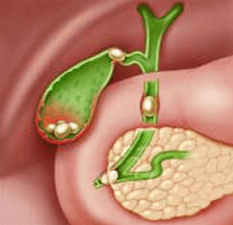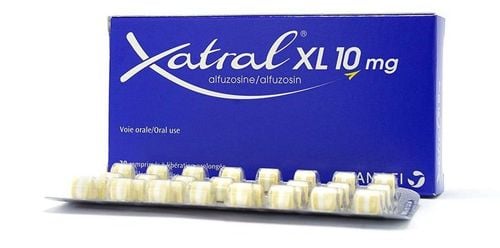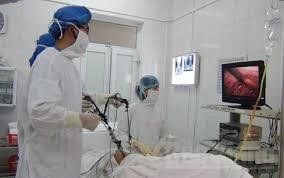This is an automatically translated article.
The article is expertly consulted by Master, Doctor Le Phuc Lien - Urologist - Department of General Surgery - Vinmec Nha Trang International General Hospital.Retroperitoneal laparoscopic surgery is one of the common methods in the treatment of ureteral stones, but this treatment method is only indicated in certain cases.
1. What is retroperitoneal laparoscopic surgery for stones?
Urinary stones are common diseases that need to be treated early to avoid blockages and affect kidney function. Currently, there are many methods applied to treat the disease, including: classic surgery, medical treatment, interventional surgery with minimally invasive methods.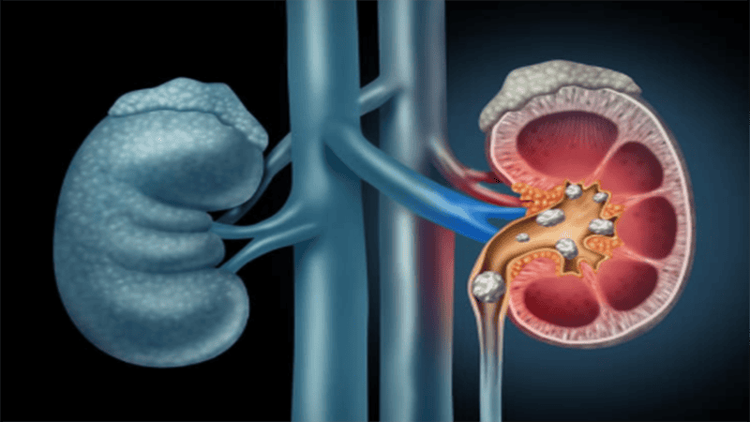
Sỏi tiết niệu không điều trị sớm sẽ ảnh hưởng đến chức năng của thận
Laparoscopic retroperitoneal stone removal is currently a minimally invasive method of treatment, especially for high-grade ureteral stones and simple pyelonephritis.
2. Indications for laparoscopic retroperitoneal stone removal surgery
Although it is the most common method of ureteral stone surgery today, doctors will appoint treatment for a number of cases, specifically as follows:Upper 1⁄3 ureteral stones, lumbar segment Simple pyelonephritis , Gallstones accompanied by small stones of the renal calyces. Medial or extra-sinus pyelonephritis. Stones larger than 2cm in diameter located in the medial or extra-sinus pyelonephritis Performing first-time surgery Pyelonephritis with a syndrome of narrowing of the junction of the renal pelvis and the ureter or the ureter located behind the inferior vena cava, perform laparoscopic surgery in combination with ureteroplasty and renal pelvis Large stones, endoscopic lithotripsy or extracorporeal lithotripsy are not indicated Recommended video:
Prevention and treatment of kidney stones
3. Contraindications in laparoscopic retroperitoneal stone removal surgery
Retroperitoneal laparoscopic stone removal surgery is also contraindicated for subjects such as:Patients with a history of open stone removal surgery, laparoscopic stone removal surgery, previous interventions in the retroperitoneal space and side Patient has a medical condition that contraindicates anesthesia, such as heart failure, coronary artery disease, or chronic heart failure Patients with coagulopathy Patients with stones located in the renal pelvis located in the sinuses Patients who have had Currently performing surgery to remove pyelonephritis, ureteral stones, kidney stones, pyelonephritis - ureteroplasty The patient has a urinary tract infection, an infection in the abdominal wall that has not been definitively treated. The patient was narrowing the urinary tract under the stone due to a number of reasons such as ureteral stenosis, urinary tuberculosis, ureteral tumor or retroperitoneal sclerosing inflammation.
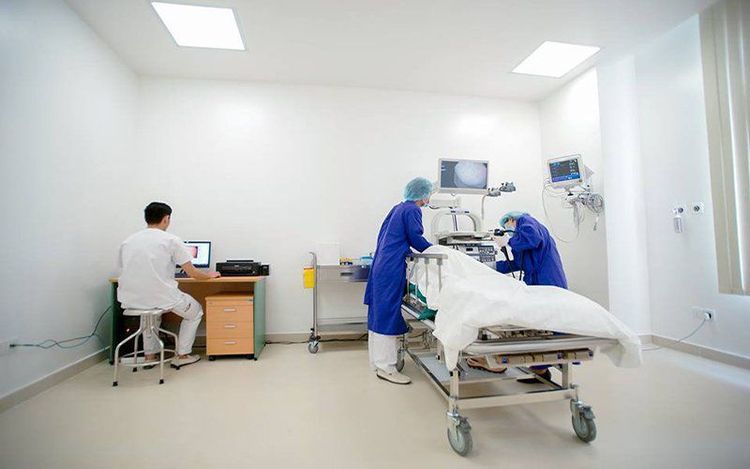
Nội soi sau phúc mạc là phương pháp mổ sỏi niệu quản phổ biến hiện nay
4. Complications of laparoscopic retroperitoneal stone removal surgery
The method of retroperitoneal laparoscopic stone removal can cause some complications during surgery and after surgery, such as:Peritoneal tear due to Trocar puncture or surgery: To handle the condition In this condition, additional Trocar should be placed to push the peritoneum or the torn peritoneum needs to be sutured. If the tear is large and cannot be sutured, it will widen and convert to transperitoneal laparoscopy. Trocar is high close to the ribs or surgery causes the patient to have a pleural tear, a perforation of the diaphragm: Perform endoscopic surgery to suture the pleura and diaphragm. It is possible to switch to open surgery if laparoscopic surgery cannot be continued. Pleural drainage if necessary. Injury to the inferior vena cava, the renal artery and the genitourinary vein due to a slipped vascular clip or surgery causing bleeding: endoscopic treatment can be applied, if it cannot be done by endoscopy. endoscopy, can switch to open surgery to stop bleeding. Other organs are injured, such as duodenum, small intestine, colon caused by dissection or Trocar puncture: Open surgery to treat damage Due to a number of factors such as technical difficulties, abnormal renal vessels, pyelonephritis adherent sclerosing, pyelonephritis moving into the renal calyx or bleeding condition cannot be stopped, need to switch to open surgery. After surgery, the patient has a lot of retroperitoneal bleeding, does not stop: Need to perform surgery immediately Accurately locate the location of the fluid collection, the size of the collection or the abscess by diagnostic methods. If the fluid collection or abscess is large, a drainage injection or open surgery must be performed. Occurrence of urine leakage after surgery: This is a very rare complication, but for inexperienced technicians, it will be confusing and difficult to handle. To manage this condition, must save the urethral catheter and medical treatment for about 1-2 weeks, if the condition does not improve, it will have to perform intervention again. With today's modern medicine, there are many other less invasive techniques that can replace retroperitoneal endoscopic stone removal. However, with certain advantages of retroperitoneal laparoscopic stone removal such as reasonable cost, safety and high efficiency, this method is still widely used in Vietnam today.
Currently, Vinmec International General Hospital has a team of professors, doctors, doctors, ... leading in the surgical department, which has successfully performed many stone treatment surgeries. Besides, with modern equipment, complete facilities will bring the highest efficiency for stone treatment.
Especially, so that patients across the country can easily visit, now, Vinmec International General Hospital also deploys general health checkup packages, helping patients detect many diseases early. disease and have the best treatment method, avoiding possible disease complications.
Resident doctor Le Phuc Lien has more than 12 years of experience in the field of urology and specialized urology, successfully performing many high-technologies such as urological endoscopy, female urology, urodynamics, bladder cystoscopy. nerve. Currently, he is a Urologist at the Department of General Surgery, Vinmec Nha Trang International General Hospital.
For detailed advice on health checkup packages at Vinmec, please come directly to Vinmec health system or register online HERE.
SEE ALSO:
Retroperitoneal endoscopic surgery to remove ureteral stones Surgery to remove ureteral stones by laparoscopic method Endoscopic laser lithotripsy: Can dissolve large stones without damage to the ureter.




